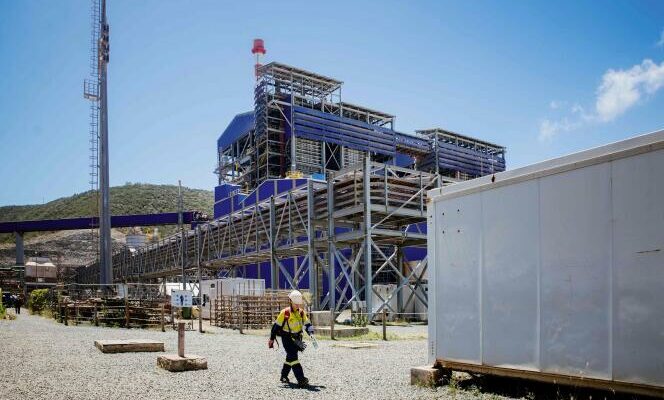In New Caledonia, a form of astonishment followed the announcement of the shutdown, from Friday 1er March, of Koniambo Nickel SAS (KNS), one of the three factories in the sector established in the territory, with Prony Resources and SLN.
This industrial tool, the result of political agreements at the end of the 1990s between the State and the separatists who wanted to rebalance the economy for the benefit of the Kanaks, is a symbol as much political as it is economic. The fact that the Anglo-Swiss group Glencore, the main shareholder of KNS, has decided to throw in the towel by seeking to sell its shares, forces the collegial government chaired by the separatist Louis Mapou to react urgently, in a depressed context. .
Negotiations with an uncertain outcome are underway to seal a pact for nickel between the State, industrialists and local authorities, aimed at saving the sector, in great difficulty in the face of the meteoric rise of an ultra-competitive Indonesian industry. and the fall in world prices, which are reshuffling the market cards.
The situation will have major repercussions on the rest of the local economy, in which the sector represents a considerable weight: nearly one in four direct and indirect jobs and 20% of the market wealth produced, according to studies by the Institute. statistics and economic studies.
Deterioration of the business climate
The relatively optimistic indicators until mid-2023, including a particularly high level of private salaried employment (with 66,000 positions), have since given way to a certain disintegration. The business climate, measured by the Overseas Emission Institute (IEOM) – the central bank of these territories – fell below its long-term average in the third quarter of 2023 and is expected to continue to deteriorate. In his last monthly letter, from March 2024the IEOM underlines that the number of business failures reached its highest level in the last ten years, during the fourth quarter of 2023. “Within twelve months, 17% of companies fear failure”she specifies.
The real estate market has also been sluggish since 2023, with the rise in credit rates. The construction industry expects to be hit by the nickel crisis, as well as a sharp slowdown in public and private orders. The sector anticipates heavy job losses, of around 3,500, or more than half of the sector’s positions, by the end of 2024.
On February 27, almost the entire New Caledonian business world, grouped within the Agissons Solidaire collective, sounded the alarm. Putting KNS to sleep “is the wave that recedes before the tsunami arrives”, he warned, before demanding a recovery plan and the suspension of all current tax reforms. The day before, four (non-independence) members of the government demanded a “state of economic emergency”.
You have 43.79% of this article left to read. The rest is reserved for subscribers.
